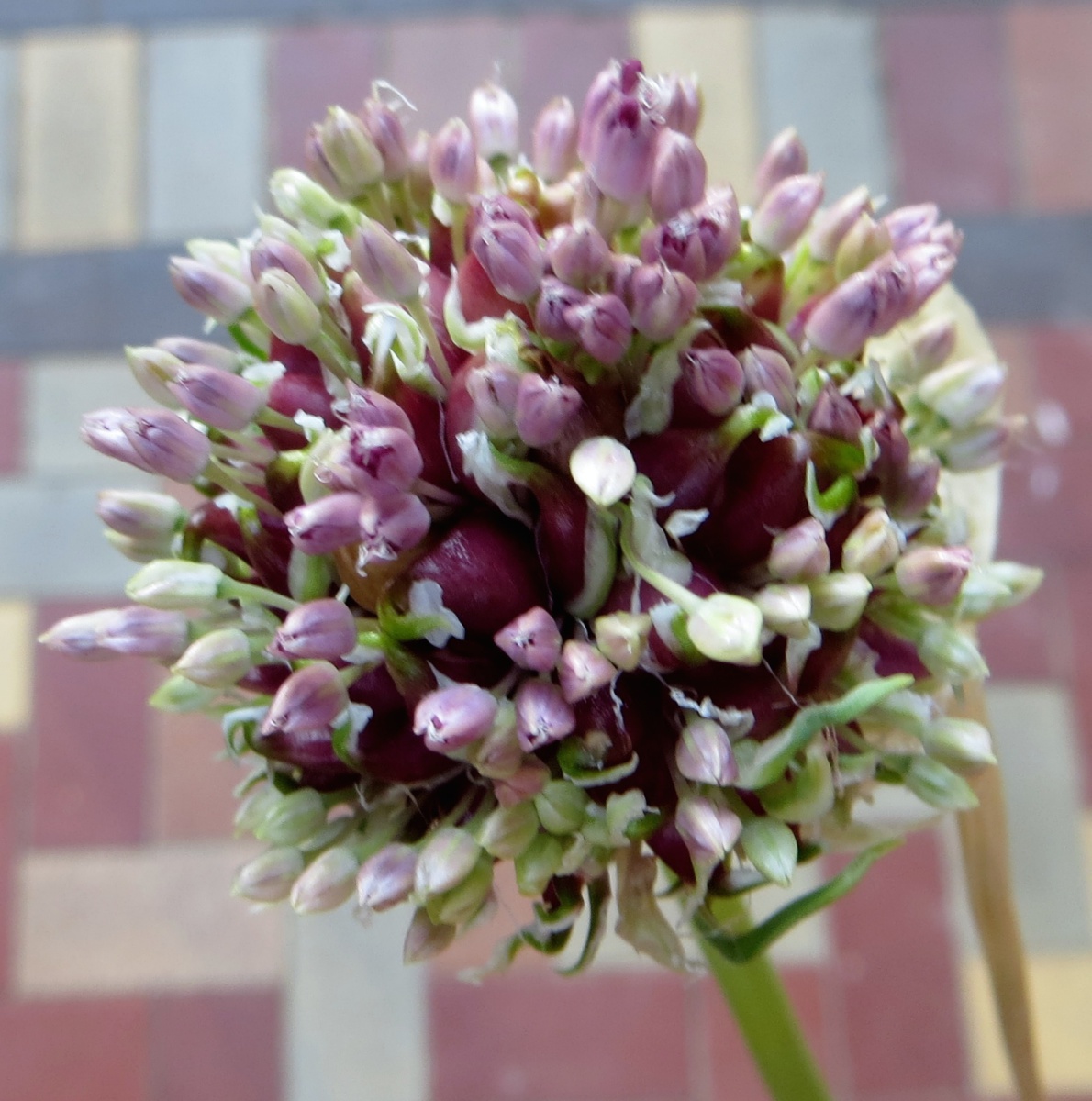
Dunganski Standard Purple Stripe Group Australian Garlic
Instructions. Prepare the Garlic Butter: Peel the Purple Stripe Garlic cloves and finely mince them. In a small bowl, combine the minced garlic, softened butter, olive oil, chopped parsley, salt, and pepper. Mix until all the ingredients are well integrated. Preheat Your Oven: Set your oven to preheat at 375°F (190°C).

7 Facts No one Will Tell You About The Purple Garlic
Siberian garlic is a hardneck, marbled purple stripe variety that thrives in both cold and warm climates. It has a medium-to-strong raw flavor that turns mild and creamy when cooked. This garlic is ideal for a range of dishes, from stir-fries to soups, and also has a long shelf-life of 6-7 months due to its tight clove skins. Contents show.
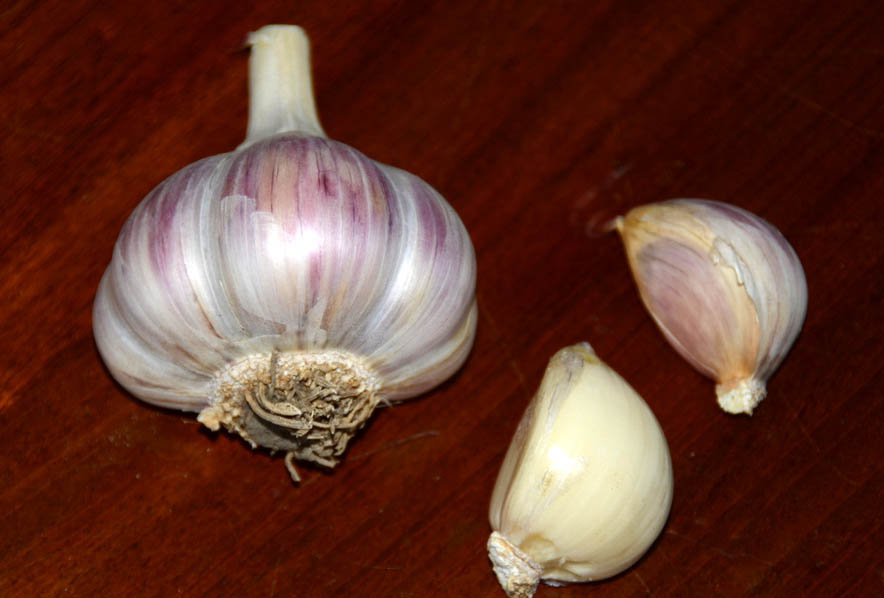
The Most Famous of the Heirloom Garlics The Striped Garlics
Purple skin color: The most distinguishing feature of purple-striped garlic is its lovely purplish tint on the papery outer skin that covers each individual clove within the head. Clove size: While size can vary depending on factors like growing conditions and specific variety, many types tend to produce larger cloves with fewer overall per.

SHVELISI, a fine Standard Purple Stripe group garlic cultivar by Wildes
Early Italian Purple garlic will mature 5 to 10 days earlier than most other garlic varieties. This softneck is excellent for mild climates. The bulbs are large with 7 to 9 creamy cloves that are wrapped in the striped purple skins. It is said to be a fairly mild garlic, with flavor and pungency middle of the scale but with rich tones.
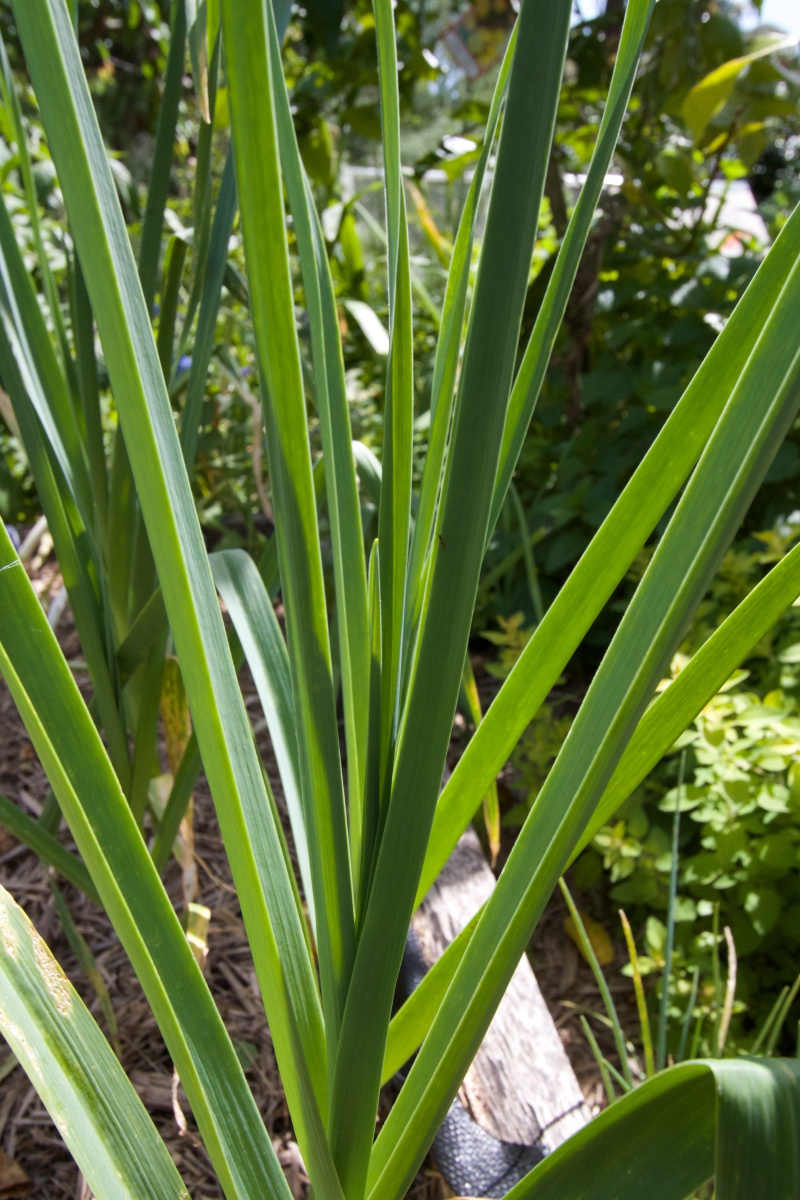
Standard Purple Stripe Group Australian Garlic
Many countries produce purple garlic of which Italian, Spanish, Australian, Mexican, Tasmanina, Chinese and Russian are known better than others. Purple vs. White Garlic. Purple garlic is smaller in size and has fewer cloves than the white one. Talking about the taste, the purple-striped garlic has milder odor and taste and lasts longer than.

Pehoski Purple Naturally Grown Garlic Bulbs Keene Garlic
Leah 99. Leah 99 is a hardneck Purple Stripe garlic variety with an excellent all-around garlic taste. This garlic variety is very beautiful with a rich flavor and a pungent garlicky aroma. In addition, the Leah 99 garlic yields sizable garlic bulbs that carry 10-12 cloves each and store well. History and Origin-.
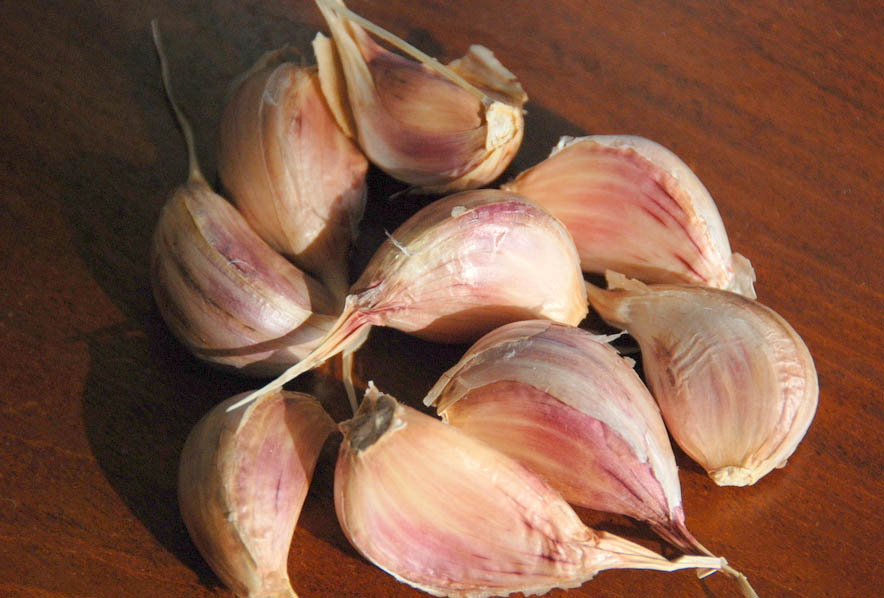
The Most Famous of the Heirloom Garlics The Striped Garlics
When it comes to roasting, your go-to garlic is a purple stripe. Roasted purple-striped hardneck varieties give a sweet sense of warmth. Simply sauteed, purple stripes provide complex flavors that offer nutty notes and honeyed, caramelized textures. With each bulb containing 10 to 14 garlic cloves, there is more than enough to go around the table.
Patricia MacDonald My Painting Life Purple Stripe Garlic
Purple stripe. Like their name suggests, this hardneck variety is identified by bright purple stripes on its outer layer. Purple garlic will usually last for six months. Care Instructions. Your home-grown garlic must be well cared for during the growing process. Choose a high-nitrogen fertiliser to help feed the plants.

Pehoski Purple Naturally Grown Garlic Bulbs Keene Garlic
Purple Stripe garlic is an appealing kind of hardneck garlic with distinctive, purple stripes or blotches on the coverings and skins. Contingent upon the temperature, the shade of purple might be clear or pale. Most Purple Stripe assortments produce 8 to 12 sickle formed cloves for each bulb.
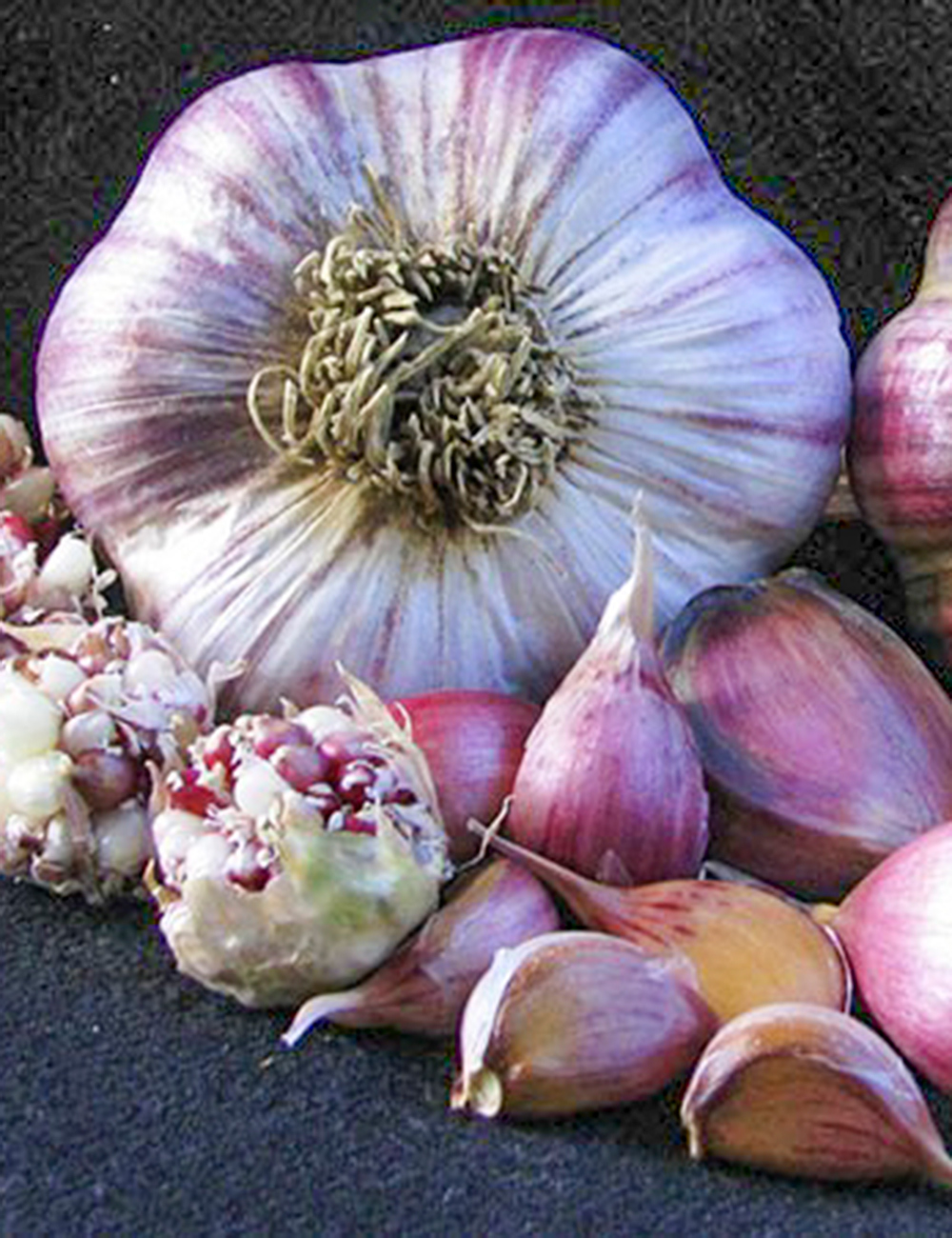
Purple Stripe Garlic Tesselaar
Purple stripe hardneck garlic. Hattie's Garden is growing, nurturing and harvesting garlic from the purple-striped family. Purple striped garlic are robust and full-flavored. They are usually vividly striped with purplish vertical stripes decorating the bulb wrappers, hence their name. Purple stripe garlic keeps for about four to six months.
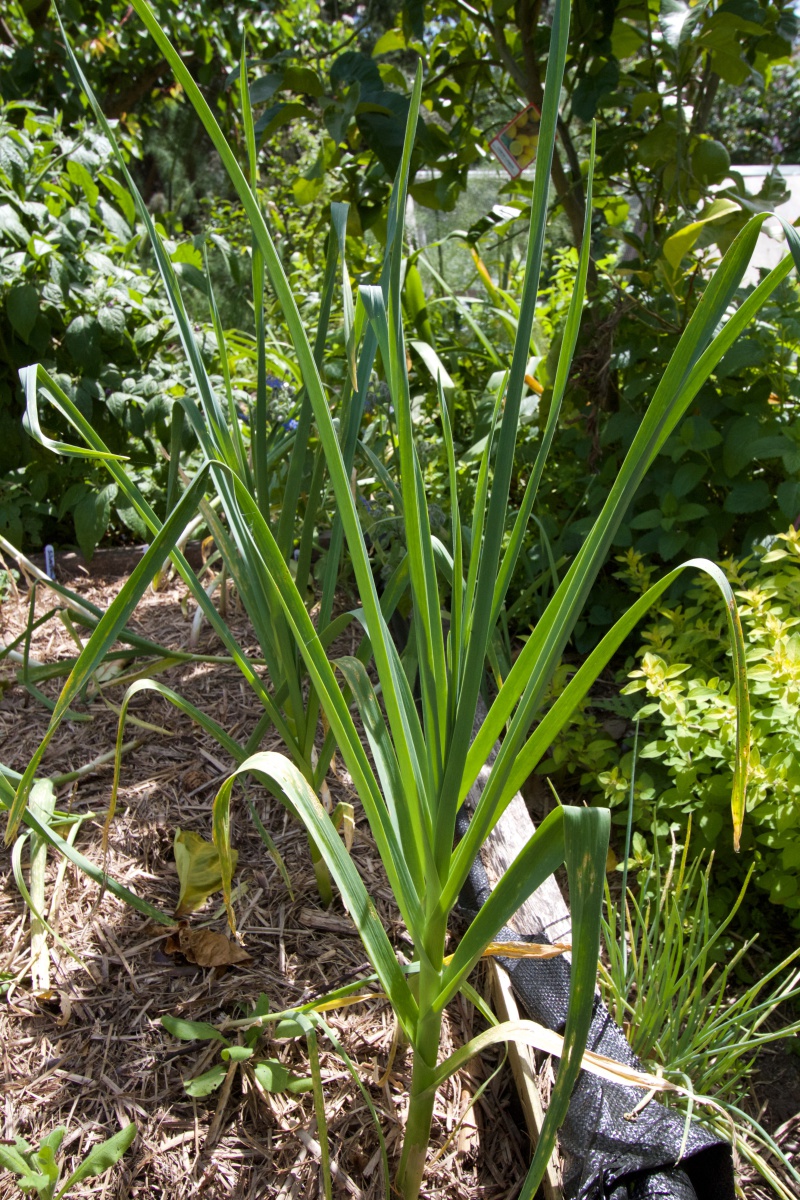
Standard Purple Stripe Group Australian Garlic
Our flagship Purple Stripe. Grows beautiful pink bulbs and tastes even better than Tibetan. Very productive and flavorful. Purple Stripe Seed Garlic: Learn about the unique characteristics of this garlic family group, including, flavor, clove count, umbels & bulbils, growing peculiarties, and so forth.

Marbled Purple Stripe Fall Garlic Garlic, Garlic bulb, Growing garlic
Spanish Roja (also known as standard purple stripe), a hardneck variety, is particularly favored for roasting, due to the appealing sweetness it develops. Regardless of the garlic type you choose, begin by slicing off the top of the bulb to expose the inner cloves, and drizzling them with olive oil.

Growing Purple Stripe Garlic What Are The Best Purple Stripe Varieties
Plant garlic in the fall, about four to six weeks before the ground freezes in your area. Divide a large Purple Stripe garlic bulb into cloves. Save the plumpest bulbs for planting. Dig 2 to 3 inches (5 to 7.5 cm.) of compost, well-rotted manure, or another organic material into the soil before planting.
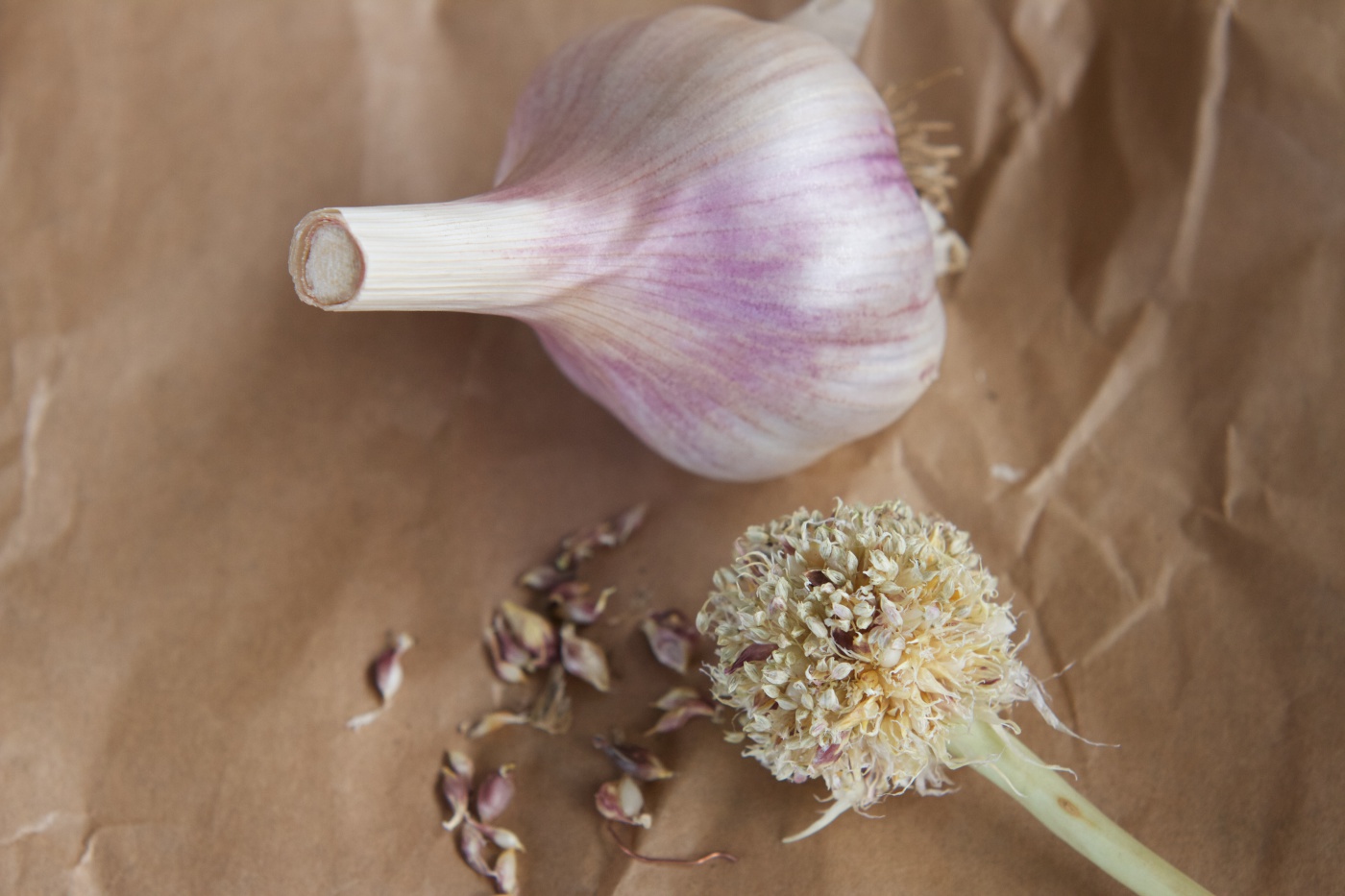
Standard Purple Stripe Group Australian Garlic
Botanical Name: Allium sativum ssp ophioscorodon 'Deerfield Purple'. Spacing: 2 - 4 inches apart, in rows 6 inches apart. Depth: Divide bulbs into cloves and set 1 - 2 inches deep; plant flat side down. Light Required: Full Sun. Color: Thin white, purple striped wrappers. Cloves are tan with purple streaks. Size: Bulb. Fruit: Large, uniform heads.
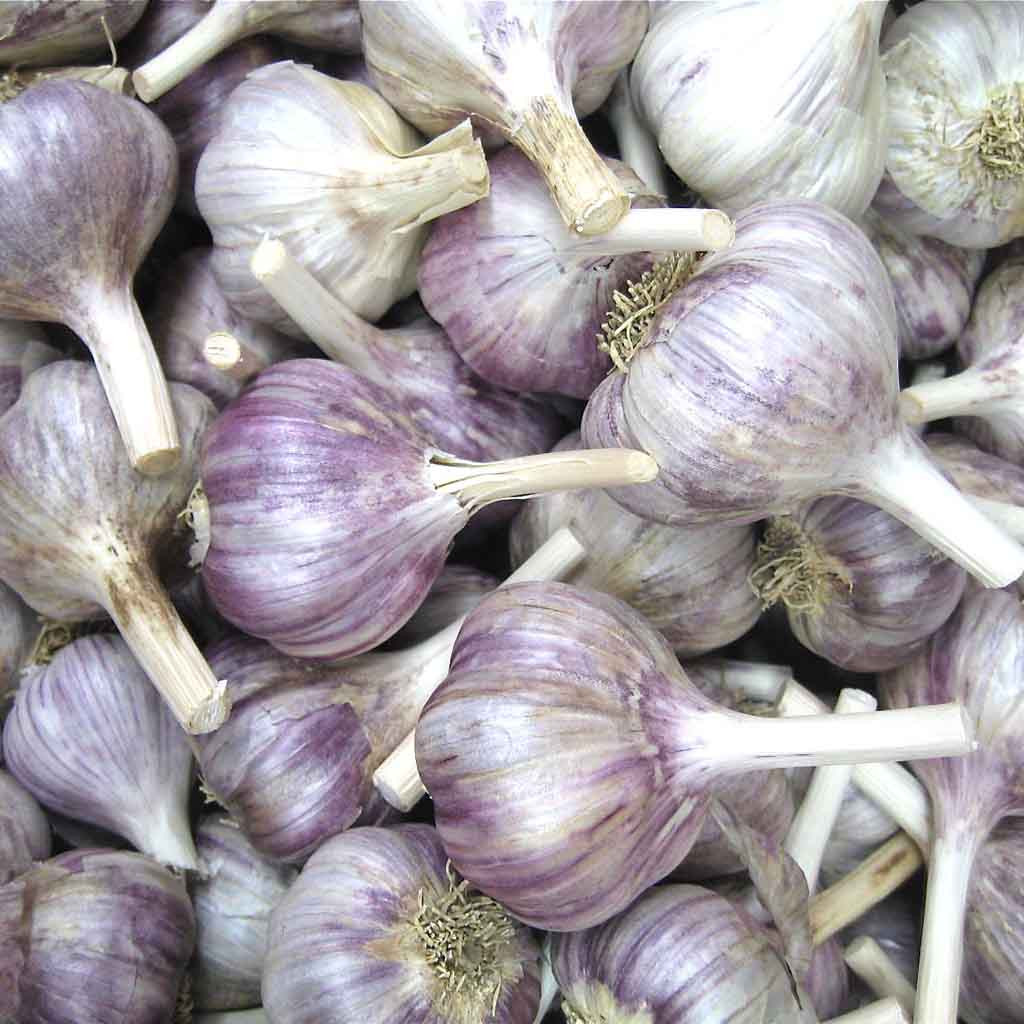
Purple Glazer Garlic Bulk
Marbled Purple Stripes are strongly bolting and produce scapes with umbel capsules contain about 60 usable bulbils that will form large rounds in the first year. If not keeping bulbils, scape removal is important to ensure maximum bulb size. Bulbs tend to have a symmetrical clove structure with beautiful purple wrappers.

VEKAN, a fine Glazed Purple Stripe group garlic cultivar by Wildes Lane.
Here are the steps to follow for growing: Choose a location: Purple stripe garlic prefers full sun and well-draining soil. Ensure that the location you choose meets these requirements to ensure that your garlic grows well. Prepare the soil: Mix in compost or well-rotted manure to improve the soil quality.